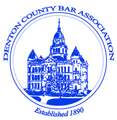Because Texas is a community property state, many people assume a 50/50 split of all marital property in a divorce. However, that belief reflects a fundamental misunderstanding of Texas’s approach to community property. The state does not require an equal split of assets. Instead, the courts will start with a presumption of equality and strive for a fair and equitable distribution, especially in Frisco high-asset divorces.
Handling the division of substantial assets in a divorce involves navigating state laws, identifying and valuing separate and community property, and resolving disputes. At Towson Law Firm, PLLC, our seasoned high-asset divorce attorneys believe in addressing these issues thoughtfully and with minimal conflict. By focusing on fairness and sensitivity, we aim to help clients achieve resolutions that protect their interests while respecting the emotional complexities of divorce.
Under Texas law, all property acquired during the marriage—including earned income, real estate, and investments—is presumed to be community property unless proven otherwise. Separate property includes assets held before the marriage and property received by gift or devise. Partners can also enter into agreements to hold specific property as separate property.
Separate property belongs to one spouse and is not subject to division upon divorce. In Frisco high-asset divorces, it is not unusual for one or both spouses to have substantial amounts of separate property. It is also not unusual for the parties to have a pre-or post-nuptial agreement that discusses the characterization of assets and their distribution upon divorce.
Whether property is separate or community is essential in high-asset divorces. However, one potential complication impacting the equitable distribution of property in Frisco divorces is the comingling of assets. Tracing the origins of assets and distinguishing between separate and community property requires thorough documentation and expert analysis.
Another common complication is disagreement about the value of assets. Valuation often involves complex financial evaluations, particularly for investments, businesses, and retirement accounts. Real estate holdings, luxury items, and unique assets like artwork or collectibles require professional appraisals to determine their fair market value.
It can be essential to get neutral third parties to handle valuation to understand the total value of property, which is necessary for equitable distribution in Frisco high-asset divorce cases.
An equitable distribution—also known as a just and right division—does not mean splitting community assets 50/50. The court may begin with an equal distribution but will consider additional factors when dividing the property.
When dividing assets, it may consider the length of the marriage, the health of the parties, each party’s financial needs, their relative earning capacities, and more. For high-asset couples, presenting accurate valuations helps ensure a fair distribution aligned with these considerations.
High-asset divorces can present unique challenges. For example, if sold or transferred, investments and retirement accounts may have significant tax implications, which affect their ultimate value and can impact distribution.
Business ownership is another common complication. Spouses may own part of a business as community property but not play any role in the company. Spouses may also be equal partners in a family business but unable to function as professional partners after a divorce.
In some cases, one spouse may suspect the other of concealing assets or income to avoid an equitable division in a Frisco high-asset divorce. In those situations, a determined divorce attorney may work with a forensic accountant to uncover undisclosed assets, including offshore accounts, undervalued properties, or hidden income streams.
Texas law does not contain the term equitable—instead, it refers to the just and right division of property. However, the results are the same. The court focuses on fairness and—starting from the presumption of an equal split—considers other factors in determining the right distribution of property.
At Towson Law Firm, PLLC, we approach the equitable distribution in Frisco high-asset divorces from a collaborative perspective when possible. To find out more, schedule a consultation with one of our seasoned family law attorneys.
Our Law Firm’s approach to your case is based on individual circumstances. Whether it is a simple negotiated settlement, or it requires an aggressive approach, we will protect and defend your best interests.


